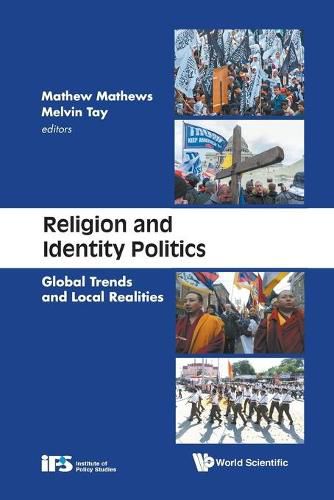Readings Newsletter
Become a Readings Member to make your shopping experience even easier.
Sign in or sign up for free!
You’re not far away from qualifying for FREE standard shipping within Australia
You’ve qualified for FREE standard shipping within Australia
The cart is loading…






This title is printed to order. This book may have been self-published. If so, we cannot guarantee the quality of the content. In the main most books will have gone through the editing process however some may not. We therefore suggest that you be aware of this before ordering this book. If in doubt check either the author or publisher’s details as we are unable to accept any returns unless they are faulty. Please contact us if you have any questions.
Discourse on fundamentalism has gained much attention in recent years, particularly in a post-9/11 context where extremist or terrorist threats are more prominent, perilous, and pervasive. This edited volume seeks to spotlight the perspectives of academics and practitioners vis-a-vis global trends in religious fundamentalism and right-wing extremism over the past decade. It presents a collection of works from notable academics and practitioners; including a selection of case studies from Asia to illustrate the contemporary interplay of religion, politics and identity; alongside broader global trends of religious fundamentalism.The chapters that follow attempt to trace the sources and factors that led to the dramatic rise in these powerful forces of faith, which influence societies and politics around the world. Together, they present a carefully curated narrative of the interplay of religion and identity politics globally and across Asia. The prevailing differences in demographics, history and the extent of ethno-religious diversity across country contexts are perused across each chapter, and the ensuing circumstances deliberated upon.As these circumstances change, the ways people interpret their identities, engage in politics, and navigate their religion will also evolve. How we manage the effects of religious fundamentalism must hence begin with an understanding of how religion, identity, and politics interact - and this is what the upcoming chapters seek to illustrate.
$9.00 standard shipping within Australia
FREE standard shipping within Australia for orders over $100.00
Express & International shipping calculated at checkout
This title is printed to order. This book may have been self-published. If so, we cannot guarantee the quality of the content. In the main most books will have gone through the editing process however some may not. We therefore suggest that you be aware of this before ordering this book. If in doubt check either the author or publisher’s details as we are unable to accept any returns unless they are faulty. Please contact us if you have any questions.
Discourse on fundamentalism has gained much attention in recent years, particularly in a post-9/11 context where extremist or terrorist threats are more prominent, perilous, and pervasive. This edited volume seeks to spotlight the perspectives of academics and practitioners vis-a-vis global trends in religious fundamentalism and right-wing extremism over the past decade. It presents a collection of works from notable academics and practitioners; including a selection of case studies from Asia to illustrate the contemporary interplay of religion, politics and identity; alongside broader global trends of religious fundamentalism.The chapters that follow attempt to trace the sources and factors that led to the dramatic rise in these powerful forces of faith, which influence societies and politics around the world. Together, they present a carefully curated narrative of the interplay of religion and identity politics globally and across Asia. The prevailing differences in demographics, history and the extent of ethno-religious diversity across country contexts are perused across each chapter, and the ensuing circumstances deliberated upon.As these circumstances change, the ways people interpret their identities, engage in politics, and navigate their religion will also evolve. How we manage the effects of religious fundamentalism must hence begin with an understanding of how religion, identity, and politics interact - and this is what the upcoming chapters seek to illustrate.